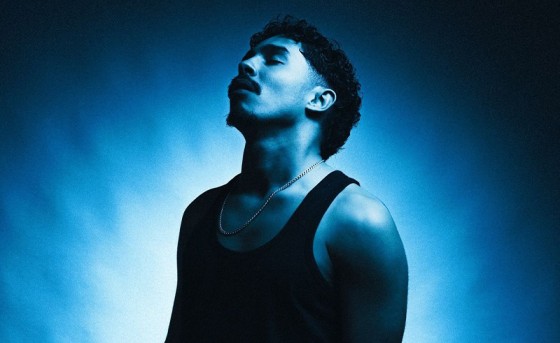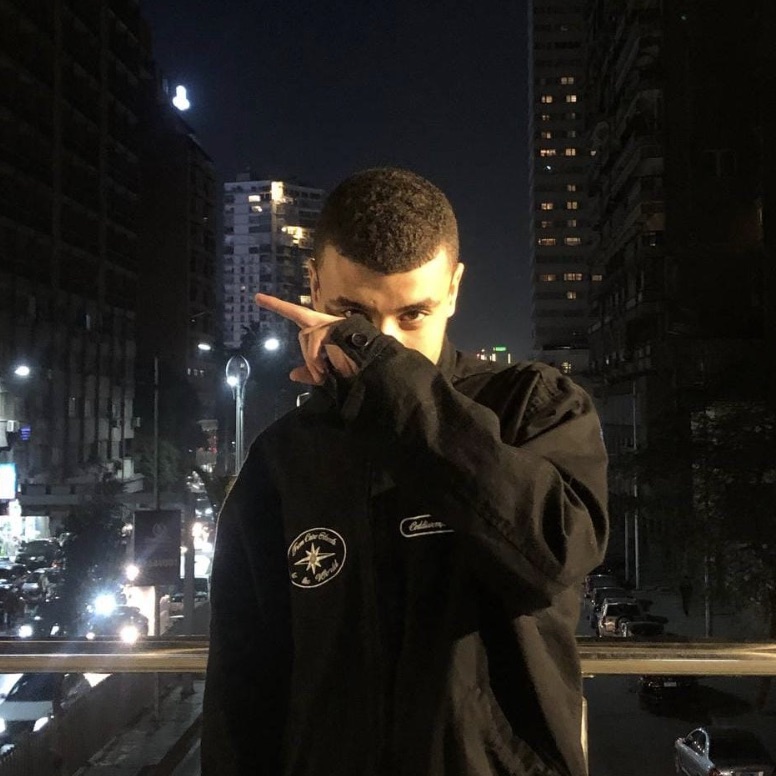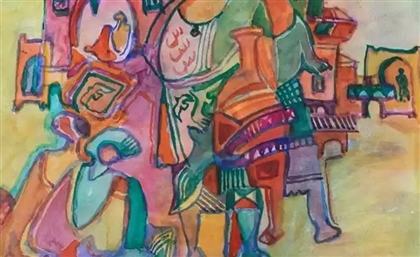Tchubi's 'Diary of A Dead Man' is a Jazz-inspired Story of Letting Go
Diary of a Dead Man is Tchubi’s most personal album, his most cohesive body of work, showcasing his maturity and conceptual talent.

Diving into Tchubi's new album, I had no preconceptions about what I was about to experience. The Moroccan rap scene, a hotbed of diverse talent, had Tchubi's name floating around, but I hadn't been keen on exploring his music. However, listening to this record for the past couple of days has been quite an experience for me, an experience that obliged me to dive deep into the rapper’s earlier works to better understand Tchubi’s music and personality.
Tchubi operates in a lane entirely his own - his music is freeform, often experimental, and always personal and filled with character. The Moroccan rapper doesn't play the genre game and doesn’t chase a certain sound. However, his ability to adapt his sound to various styles into a cohesive body of work is impressive.
The rapper’s fourth album, ‘Diary of a Dead Man’, delves into personal contemplations and reflections, capturing the repercussions of his past during one night in the city of Rabat. Described on the album’s back cover as “a short story of letting go,” Tchubi confronts past ghosts, grapples with life’s realities and contemplates the future.
The album’s opener, 'DEAR DIARY!', sets the tone with slow and intimate saxophone lines and subtle piano chords. Tchubi’s narrated words enter the cinematic soundscape as if he’s journaling his own thoughts with vulnerability, fading smoothly into the next track, 'Papercuts'. This track begins Tchubi’s one-night tale with the sound of a car engine starting, and he’s off into the city. The track feels like a chill cruise through Rabat’s streets, ending with another spoken word narration by Tchubi, reinforcing the album’s overarching theme.
The album’s sound explores various themes with precision, avoiding reliance on any specific sound or idea. Jazz however is a continuous thread throughout the record, with its elements and various instruments from horns and trumpets to drumming and tempos incorporated with trap, drill boom bab and R&B. The track 'RABAT CITY JAZZ' featuring Vargas is a highlight, where Tchubi gets personal and vulnerable yet with acceptance. The track features jazz instrumentation coupled with subtle kick drums and a lo-fi aesthetic. Tchubi’s intimate delivery complements the instrumentation nicely, with a standout feature from Vargas.
'Whiplash' continues the jazz structure, with Tchubi’s spoken diaries floating into the mix, setting up the backdrop for the following track, 'OFF MY MIND'/ This track features a distant sample from Moroccan indie band K’lma’s 'Kif Lem’eani', which questions meaning and purpose, providing a melancholic backdrop for Tchubi’s contemplative lyrics and introspective delivery over free jazz elements, making it one of the more intimate records on the album.
Tchubi ventures into experimental territory on 'ALL MONSTERS COME OUT AT NIGHT', which showcases a shift in tone. The production utilizes jazz elements in its first half, with Tchubi’s reflective bars complementing the instrumentation. The second half of the track features a complete beat switch, with screamy distant sounds leading into an experimental boom bap production and a powerful, aggressive verse from Figoshin, injecting different energy into the record.
The album closes with 'BEST REGARDS, ME?', a cinematic outro that mirrors the intro, tying up the record beautifully. Tchubi’s “last words” are spoken, enhanced by the predominant jazz instrumentation. ‘Diary of a Dead Man’ is Tchubi’s most personal album, his most cohesive body of work, showcasing his maturity and conceptual talent. The artist proves he is one of the more unique voices in Morocco, cultivating his own sound and operating in a lane of his own.
- Previous Article Italian-Palestinian Duo No Input Debuts Eponymous Electro EP
- Next Article Travel Across History on Egypt's Most Iconic Bridges
Trending This Week
-
Dec 23, 2025



























